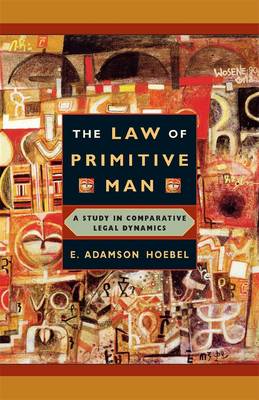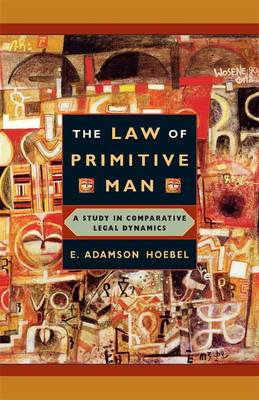
Bedankt voor het vertrouwen het afgelopen jaar! Om jou te bedanken bieden we GRATIS verzending (in België) aan op alles gedurende de hele maand januari.
- Afhalen na 1 uur in een winkel met voorraad
- In januari gratis thuislevering in België
- Ruim aanbod met 7 miljoen producten
Bedankt voor het vertrouwen het afgelopen jaar! Om jou te bedanken bieden we GRATIS verzending (in België) aan op alles gedurende de hele maand januari.
- Afhalen na 1 uur in een winkel met voorraad
- In januari gratis thuislevering in België
- Ruim aanbod met 7 miljoen producten
Zoeken
€ 55,95
+ 111 punten
Omschrijving
A classic work in the anthropology of law, this book offered one of the first ambitiously conceived analyses of the fundamental rights and duties that are treated as law among nonliterate peoples (labeled "primitive" at the time of the original publication). The heart of the book is a description and analysis of the law of five societies: the Eskimo; the Ifugao of northern Luzon in the Philippines; the Comanche, Kiowa, and Cheyenne tribes of the western plains of the United States; the Trobriand Islanders of the southwest Pacific; and the Ashanti of western Africa. Hoebel's lucid analysis reveals the variety and complexity of these societies' political and legal institutions. It emphasizes their use of due process in adjudication and enforcement and highlights the importance of general explicit standards of conduct in these societies. In offering these detailed case studies of societies studied by other anthropologists, and in outlining an influential approach to the subject, it remains an illuminating book for both scholars and students.
Specificaties
Betrokkenen
- Auteur(s):
- Uitgeverij:
Inhoud
- Aantal bladzijden:
- 368
- Taal:
- Engels
Eigenschappen
- Productcode (EAN):
- 9780674023628
- Verschijningsdatum:
- 1/09/2006
- Uitvoering:
- Paperback
- Formaat:
- Trade paperback (VS)
- Afmetingen:
- 141 mm x 217 mm
- Gewicht:
- 458 g

Alleen bij Standaard Boekhandel
+ 111 punten op je klantenkaart van Standaard Boekhandel
Beoordelingen
We publiceren alleen reviews die voldoen aan de voorwaarden voor reviews. Bekijk onze voorwaarden voor reviews.









